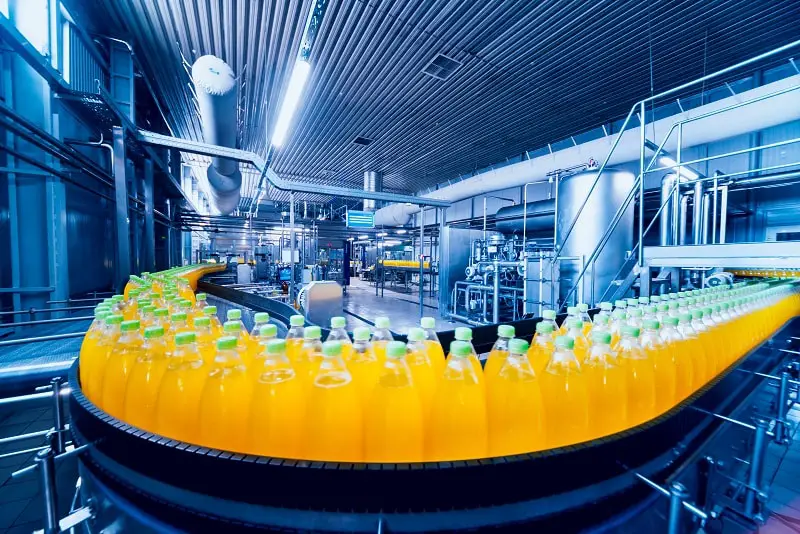Salary, Job Description, How To Become One, and Quiz
.jpg)
Flavorists
Flavorists help create and alter flavors for a wide range of foods. Flavorists conduct lab experiments to analyze the chemical properties of ingredients and improve the taste of food products.
Table of contents
Flavorists help create the flavors in your favorite foods. From chips to cookies, Flavorists use chemistry to enhance or remove flavors in all types of food products.
If you enjoy food and testing different flavors, working as a flavorist may be a good fit. However, working as a flavorist involves more than just tasting and experimenting.
You need a strong understanding of the chemical composition of foods, plants, oils, and extracts. Flavorists learn to intensify natural flavors and create artificial flavors, often to make processed food taste better.
What they do
Flavorists help create and alter flavors for a wide range of foods. Flavorists conduct lab experiments to analyze the chemical properties of ingredients and improve the taste of food products.
Create New Flavors
Flavorists are often responsible for creating new flavors for a variety of food products. They typically make flavors for the flavor houses that supply flavorings to various food manufacturers.
When creating a new flavor, flavorist work in a laboratory setting. They rely on their knowledge of the chemical properties of common ingredients and additives.
The process of creating new flavors depends on the type of food that they are working with. For example, when working with processed foods, flavorists may need to consider how the additives in the food may impact the flavor.
Creating flavors also involves tests. The flavors created by flavorists need to remain noticeable to the average consumer after boiling, freezing, cooking, or processing the food.
Alter the Flavor of Existing Foods
Along with creating new flavors, flavorists may be tasked with improving the flavor of existing food. This is often necessary when a food manufacturer adjusts the ingredients in an existing food item.
Changing just one ingredient can dramatically impact the flavor of the food. Instead of keeping the new flavor, a food company may use a flavorist to recreate the original flavor.
Altering the flavor of existing food products is also common when working with processed foods. To increase the shelf life of food, many products contain starches or sugars that reduce the natural flavors. Flavorists help enhance the characteristics of the flavors to make processed foods taste better.
Research the Characteristics of Different Ingredients
Flavorists often need to enhance natural and artificial flavors, which requires knowledge of the chemical characteristics of different ingredients. They often rely on previous research from other flavor chemists or complete their own research in the lab.
Researching the chemical properties of an ingredient is also necessary when recreating a natural flavor in the lab. Before a flavorist can improve an existing flavor, they need to create it using a combination of naturally occurring and artificial ingredients.
Collaborate with Other Food Scientists
Flavorists rarely work alone. They often work as part of a team with food scientists and other flavorists. The team may receive specific goals for a project, such as producing a new flavor or improving the taste of an existing product.
What is the job like
Pros
You Help Make Food Taste Better
Making food taste better is a rewarding experience, as you know that you are helping people get more enjoyment out of the food they eat.
Interesting Career
Explaining what you do provides a great icebreaker for conservations.
You Get to Taste Different Foods
The process of creating and altering flavors gives you the chance to try a wide range of foods.
You May Try Products Before the Public
If you work for a food manufacturer, you may get to test products before they reach the grocery store shelves.
Cons
Potential Risk of Exposure to Chemicals
Flavor chemists work with chemicals, which creates the potential for exposure to hazardous substances.
Complex Topics
Becoming a flavorist requires strong knowledge of chemistry, which can be a challenge for those that do not enjoy science.
Where they work




Flavorists mostly work for flavor houses, which are the companies that provide flavorings to food manufacturers. Flavorists may also work for food processing companies, academic institutions, and government agencies, such as the US Department of Agriculture (USDA) and the Food and Drug Administration (FDA). No matter the employer, Flavorists often work in laboratory settings.
How to become one
Step 1: Study Chemistry in High School
Flavorists are “flavor chemists,” which necessitates a knowledge of chemistry, which high school students can start learning before college.
Step 2: Earn a Bachelor’s Degree
A Bachelor’s degree is the minimum educational requirement for flavorists. The most common majors include food science and chemistry.
Step 3: Earn a Master’s Degree
While not strictly required, a Master’s degree helps flavorists advance their careers faster. You will also receive specialized training in the food sciences.
Step 4: Become a Junior Flavorist
After finishing college, find entry-level work as a junior flavorist or lab assistant.
Step 5: Complete an Apprenticeship
After gaining five years of experience, you may apply for an . The apprenticeship typically lasts two years.
Step 6: Become a Certified Flavorist
The Society of Flavor Chemists requires members to complete a total of seven years of training before becoming a certified flavorist. This includes five years of work experience and a two-year apprenticeship.
Should you become one
Best personality type for this career
People with this personality likes to work with ideas that require an extensive amount of thinking. They prefer work that requires them to solve problems mentally.
You can read more about these career personality types here.
Working as a flavorist requires strong communication skills, as you will often need to explain tastes and flavors to others. Successful flavorists also have a good memory, due to the need to remember the chemical makeup of various ingredients. Patience is another essential personality trait, as lab work is often time-consuming and dull.
Take this quiz to see if this is the right career for you.
Don’t know which career to pursue?
Take the career quiz to find careers that match your personality type.
Take The Career Quiz
.jpg)
.jpg)
.jpg)
.jpg)
.jpg)
.jpg)
.jpg)
.jpg)
.jpg)
